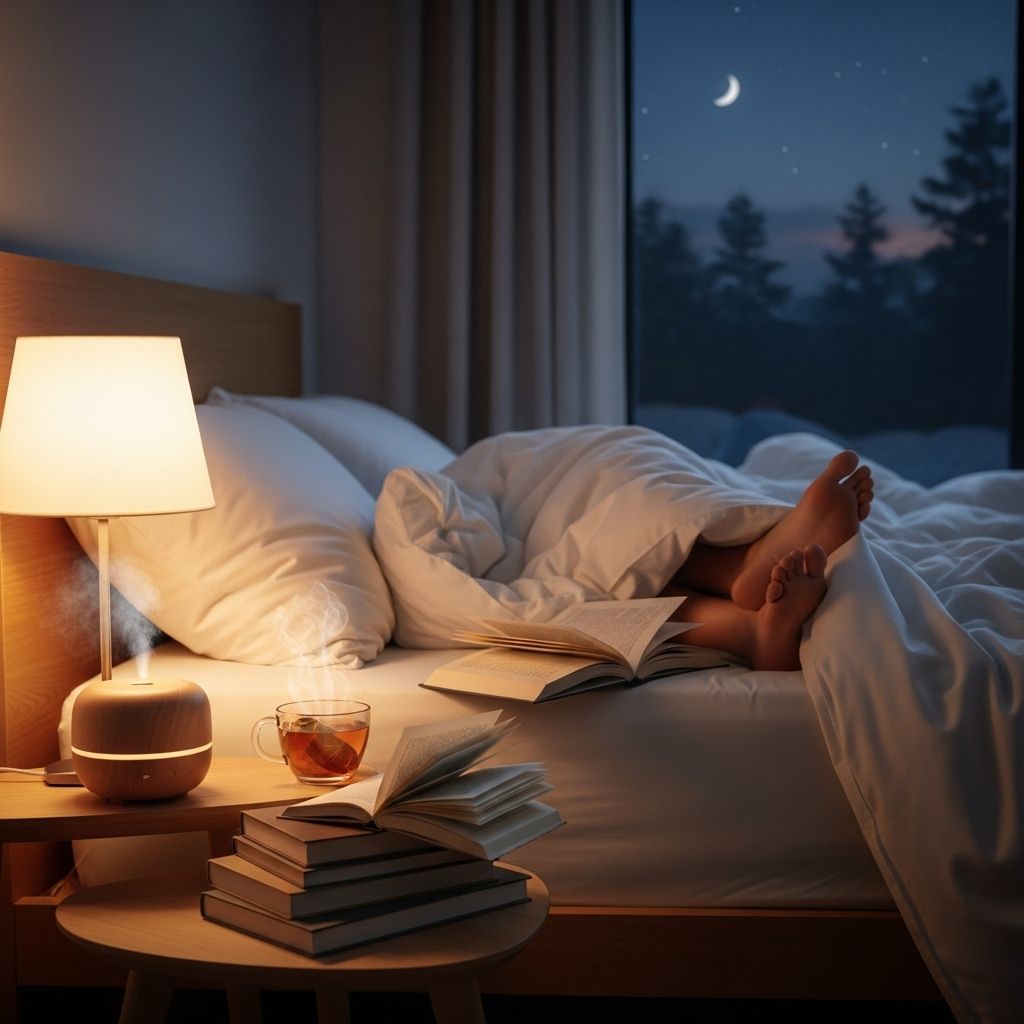Sleep Hygiene: Foundation for Stress Management – The Science and Strategies You Need to Know
Adjusting your nightly habits can unlock calm and strengthen your emotional resilience.

Table of Contents
- What is Sleep Hygiene?
- The Biology of Sleep and Stress
- How Sleep Hygiene Links to Stress Management
- Proven Tips for Better Sleep Hygiene
- Sleep Hygiene and Mental Health
- Frequently Asked Questions
What is Sleep Hygiene?
Sleep hygiene refers to a set of practices, habits, and environmental factors that are essential for healthy and consistent sleep patterns. Good sleep hygiene includes maintaining a regular sleep schedule, creating a restful environment, avoiding stimulants before bedtime, and engaging in relaxing pre-sleep routines. These practices help the body and mind prepare for restful sleep, which is crucial for managing daily stressors and maintaining overall health.
Research shows that people with good sleep hygiene experience lower stress levels and improved mental health compared to those with poor sleep habits.
The Biology of Sleep and Stress
Sleep and stress are closely intertwined at a biological level. When we sleep, our bodies engage in restorative processes that affect both physical and mental health. One of the most significant hormones involved is cortisol, often referred to as the “stress hormone.” Sleep deprivation leads to elevated cortisol levels, which can heighten the body’s stress response, making you feel more anxious and less able to cope with challenges.
Chronic sleep deprivation not only increases stress but can also impair emotional regulation, memory, and cognitive function. The brain uses sleep time to process emotions and consolidate memories, so inadequate rest can leave individuals feeling emotionally fragile and mentally drained.
| Sleep Quality | Effect on Stress | Effect on Mental Health |
|---|---|---|
| Good | Lower cortisol, better stress resilience | Improved mood, reduced anxiety |
| Poor | Higher cortisol, heightened stress response | Increased anxiety, mood swings, impaired cognition |
How Sleep Hygiene Links to Stress Management
Good sleep hygiene acts as a foundation for effective stress management. When sleep quality is high, you’re more resilient to daily stressors and better able to recover from emotional strain. Conversely, poor sleep habits contribute to a vicious cycle—stress can make it harder to sleep, and poor sleep can amplify stress, making it harder to break out of the cycle.
Studies show that regular sleep hygiene practices—such as maintaining a consistent bedtime and wake time, avoiding caffeine late in the day, and creating a calming bedtime routine—can significantly lower perceived stress levels. For example, students who consistently practiced good sleep hygiene reported feeling less stressed and more emotionally stable.
Breaking the stress-sleep cycle begins with intention: those who are intentional about their sleep hygiene tend to experience greater benefits, especially when stressors are high.
Proven Tips for Better Sleep Hygiene
- Keep a Consistent Sleep Schedule: Go to bed and wake up at the same time every day, even on weekends.
- Create a Restful Environment: Make your bedroom dark, quiet, and cool. Consider blackout curtains and white noise machines.
- Limit Electronics Before Bed: Avoid screens at least an hour before bedtime, as blue light can disrupt your natural sleep-wake cycle.
- Avoid Stimulants: Cut out caffeine, nicotine, and heavy meals a few hours before bedtime.
- Establish a Relaxing Bedtime Routine: Activities like reading, gentle stretching, or meditation can help signal to your body that it’s time to wind down.
- Exercise Regularly: Physical activity during the day can promote better sleep at night, but avoid vigorous exercise close to bedtime.
Sleep Hygiene and Mental Health
Sleep hygiene is not just about quantity—it’s about quality. Poor sleep hygiene is linked to sleep problems, daytime sleepiness, depression, and anxiety. In a survey of adults, those with poor sleep hygiene were more likely to report everyday sleep problems and diminished mental health.
Poor sleep can also weaken the immune system, making recovery from illness slower and adding another layer of stress. This is because, during sleep, the body produces infection-fighting substances that are essential for health and recovery.
Improving sleep hygiene has been shown to enhance mood, increase resilience, and lower the risk of anxiety disorders and other mental health challenges. Those who already struggle with anxiety or stress may find that prioritizing sleep hygiene offers significant relief from their symptoms.
Frequently Asked Questions
Q: How many hours of sleep should I get each night to manage stress?
A: Most adults need 7–9 hours of quality sleep per night. Consistently sleeping fewer than six hours is linked to higher stress levels and poorer health outcomes.
Q: What is the best bedtime routine for better sleep hygiene?
A: A calming routine might include reading a book, practicing mindfulness or meditation, gentle stretching, listening to soft music, or taking a warm bath.
Q: Can poor sleep hygiene cause anxiety?
A: Yes, poor sleep hygiene can contribute to increased anxiety and make existing anxiety symptoms worse.
Q: How quickly can improving sleep hygiene reduce stress?
A: Individual responses vary, but many people notice improvements in mood and stress levels within days to weeks of adopting good sleep hygiene practices.
Q: Do sleep hygiene practices differ by age?
A: The basics are similar across ages, but children and older adults may have different sleep needs and schedules. Consult a healthcare provider for age-specific advice.
Conclusion
Sleep hygiene is a foundational pillar for effective stress management and overall mental health. By adopting consistent, healthy sleep practices, individuals can break the cycle of stress and poor sleep, leading to improved emotional resilience, better cognitive function, and enhanced well-being. Whether you are a student, a working professional, or anyone seeking to manage stress more effectively, prioritizing sleep hygiene is one of the most impactful steps you can take for your health and happiness.
References
- https://www.bannerhealth.com/healthcareblog/teach-me/how-sleep-can-affect-stress
- https://arootah.com/blog/health-and-wellbeing/sleep-health-and-wellbeing/the-link-between-sleep-and-stress-management/
- https://directivepublications.org/jopm/articles/Sleep-Hygiene-as-a-Stress-Management-Strategy-for-Students.pdf
- https://pmc.ncbi.nlm.nih.gov/articles/PMC10105495/
- https://pmc.ncbi.nlm.nih.gov/articles/PMC7045300/
- https://www.cedars-sinai.org/blog/sleep-stress.html
- https://www.apa.org/news/press/releases/stress/2013/sleep
- https://www.sleepmedres.org/journal/view.php?doi=10.17241%2Fsmr.2023.01788
Read full bio of Sneha Tete












